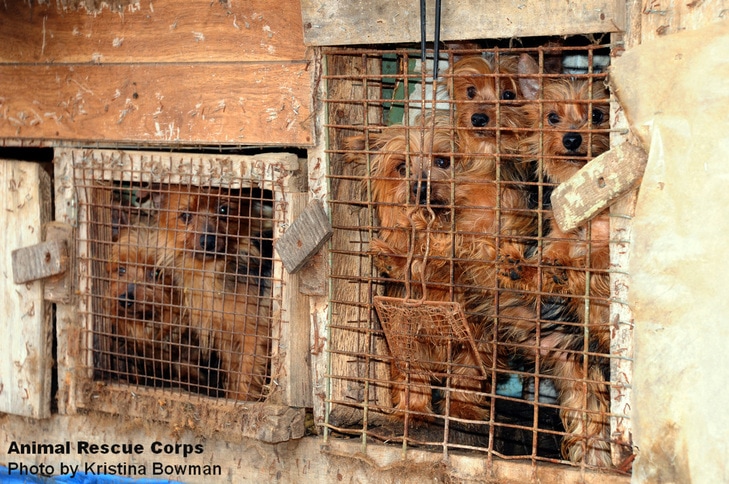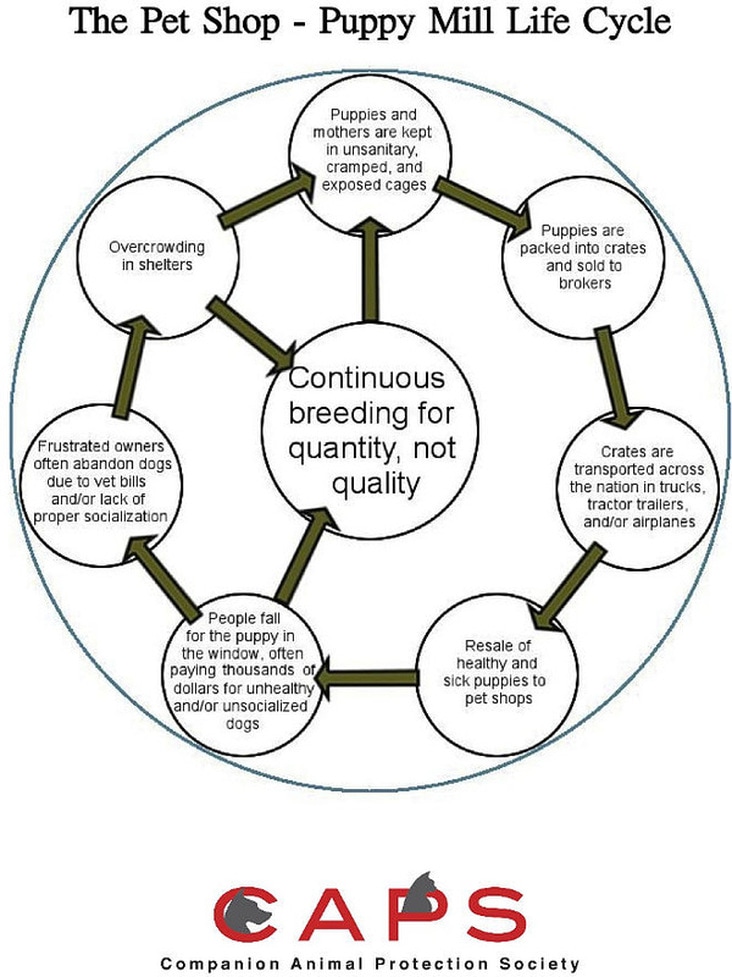|
What percentage of puppies in pet stores come from puppy mills - 50%? 75%? How about 90%. Approximately 90% of puppies in pet stores come from commercial breeding facilities known as "puppy mills". In a puppy mill dogs are mass-produced and sold to pet stores, as well as through classified ads and over the Internet. In most states it is legal to keep HUNDREDS of dogs in cages their entire lives - simply for the purpose of reproduction. Most, if not all of the time, their feet never touch the ground. They are kept in crowded wire cages filled with excrement, kept outdoors without shelter from the elements, given little to eat or drink and what is available is generally unsanitary. Puppies born from puppy mill moms are taken away prematurely and suffer significant behavioral issues. Dogs in puppy mills are strictly commodities with no regard of their welfare. Several organizations take the puppy mill problem in this country very seriously. Two leaders in advocating against puppy mills are the Humane Society of the United States (HSUS) and Animal Rescue Corp (ARC) . After receiving a call from the HSUS Puppy Mill Task Force Tip Line (1-877-MILL-TIP), a year long investigation resulted in a puppy mill raid of 121 dogs by in Arkansas. Animal Rescue Corp comes to the aid of Puppy Mill victims such as this September 2013 raid, where 127 animals were seized from a Kentucky Puppy Mill. Alternatives are plenty instead of buying a pet store puppy mill dog, "Adopt Don't Shop", as Last Chance for Animals Rescue and others advocate. They advocate for these choices to help end the cycle and suffering of puppy mills dogs, as well as general animal companion overpopulation: 1) Check out a new breed of pet stores emerging, such as Shelter Hope Pet Shop in Thousand Oaks, CA. Dogs found at these shops are shelter dogs. not puppy mill dogs. 2) Choose dogs from local shelters - 25% of dogs are purebreds. 3) Choose dogs from breed-specific rescue organizations. Generally rescues are not for profit and in most cases the dogs have been provided with medical care in advance of adoption, including spaying or neutering. Do your homework. |
World Animal Awareness Society Family of Companies For Good
© 2009 - 2024 World Animal Awareness Society & WA2S Films - An Award-Winning Google Non Profit Partner
World Animal Awareness Society & WA2S Films & World Animal Rescue Network - From animal rescue following disaster to addressing the world's most important animal related issues, the all volunteer WA2S is an award-winning global non profit focused on contemporary human animal interaction.
c. 2009 - 2024 All rights Reserved: World Animal Awareness Society & WA2S Films HQ /Studio: San Antonio, Texas 818.561.5109






